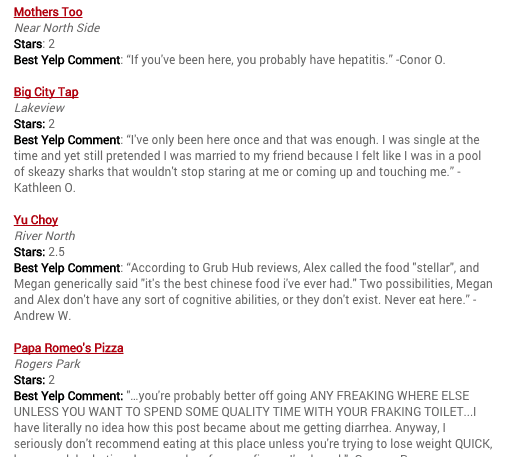Path Digital › News & Blog › Authority and social media: what is #socialsayso?
Authority and social media: what is #socialsayso?
by Nate Holman on November 18, 2015
/ 0 comments leave a reply
When you consider social media adding a “dimension” to traditional branding & promotional mediums, people and companies today have more power to not just inform and market themselves – but interact in ways we didn’t have power to before. It’s obvious, right? As an American consumer, you can’t escape the hashtag onslaught across digital and T.V. (About every other ad was #tagging during the Super Bowl.)

But if the idea of social media conversations between brands and customers has lost a little luster, I’d say it’s only because the formula for success – what makes some valuable, others just noisy – isn’t so well defined.
Here are a few observations I’ve picked up as both a user (consumer) and a digital strategist.
The “rules of engagement” in social aren’t the same.
Taking a flat approach to integrated, multi-dimensional marketing (i.e., treating social media as another vehicle for promotion and branding) isn’t sustainable, and here’s the simple reason why: social media users aren’t like TV watchers (duh!) or even other users in the digital space.
Social media users are authors, and they are recommenders. Both of these active qualities of social media require your integrated campaign to not just promote & engage, which initiates the “conversation,” but to have a personality and validity that keep the interaction going.
To see what I mean, here are ways I can socially engage with Brand XYZ as a user.
#Hashtagging
I can use your campaign hashtag or even tag #XYZ directly on Facebook/Twitter/G+ etc. to get your attention. As an “author,” all I’m typically doing is adding my two cents to a pile of customer feedback (the tag essentially serving up a discussion forum – or circle, to use G+’s language). But as a recommender I’m associating my online brand, positively OR negatively, with that of XYZ.
Again, obvious and important; my network sees and is affected by this activity. (Sometimes the social #fails are epic.)
Sharing (recommending)
Ah, the power of the share. We know it’s an SEO ranking factor, but also that brilliant content doesn’t translate necessarily to shareability. Or does it?
No one would claim a one-size-fits-all approach, but a 2014 study from BuzzSumo seemed to find content “invoking awe (25%), laughter (17%), or amusement (15%)” more shareable than content relating to sadness/anger. Which makes sense. As social sharers/recommenders, sadness and anger aren’t emotions we typically want to blast out to our networks.
(Here’s to hoping that stays true during election season. 🙂 )
But let’s take this a step further. It’s not just the act of sharing that’s important (which causes XYZ’s awesome YouTube cat vid to go viral), it’s who is sharing the video – and associating themselves with XYZ in the process. This is more important for brand impression in the long run.
Sharing has a narcissistic quality to it, as BuzzSumo points out. But if your brand makes me look good, then by association you look good.

Authorship (reviews, posts, etc.)
Just like someone spreading the good word in real life, this “authorship” (of a post, tweet, review, comment, etc.) can be the most effective form of social – and, more broadly, digital – word-of-mouth…
IF the author has:
• Credibility. The person behind the post, tweet, review, comment is someone you know and trust. The less I know about someone, or their online brand/presence, at least, the less I have available to trust. (We don’t always believe every Yelp review we read.)
• Authority. Said person has perceived online authority (social influence, for example). That’s a different ball of wax: as a user, I don’t just perceive that you know your stuff, but that you’re someone worth listening to. You’ll find scoring systems like Klout’s that ascertain to measure influence via metrics like engagement and reach, but overall authority’s at least a little more difficult to define, right? The key takeaway: to your users, it’s about more than shares, clicks and views. I’d venture to say that SEO methodologies back this up.
As one Hootsuite post says, “On an individual level, social media influence can be a sign of advanced digital skills and an ability to create interesting social media content.” And until it distinguishes itself content-wise, Brand XYZ is competing for my network-feed attention span with individuals.
So what does all this mean for integrated branding and promotions? It short, that success in the long term depends on an in-depth understanding of the word-of-mouth behaviors people use online to interact with your brand.
With social, it’s not just reach that’s important – how far you can shout – but how well you “get” your audiences, and prospective audiences, as authors, recommenders and actual human beings. After all, you’re not just marketing to a demographic (traditional TV) or a persona (digital), but interacting with individuals who have social say-so of their own.

Through a Chicago-based SEO consultancy, Path Digital Services & Consulting, Nate offers custom, platform-oriented SEO services for small to midsize business and agency clients on WordPress, Shopify, Squarespace, BigCommerce and lots more. More about Path Digital ›

Leave a Reply